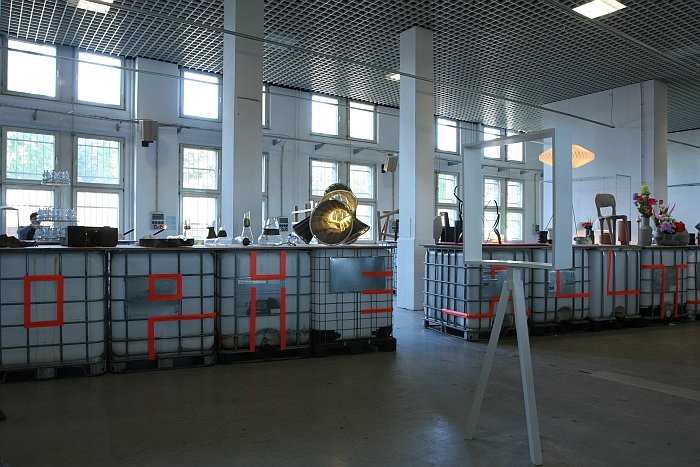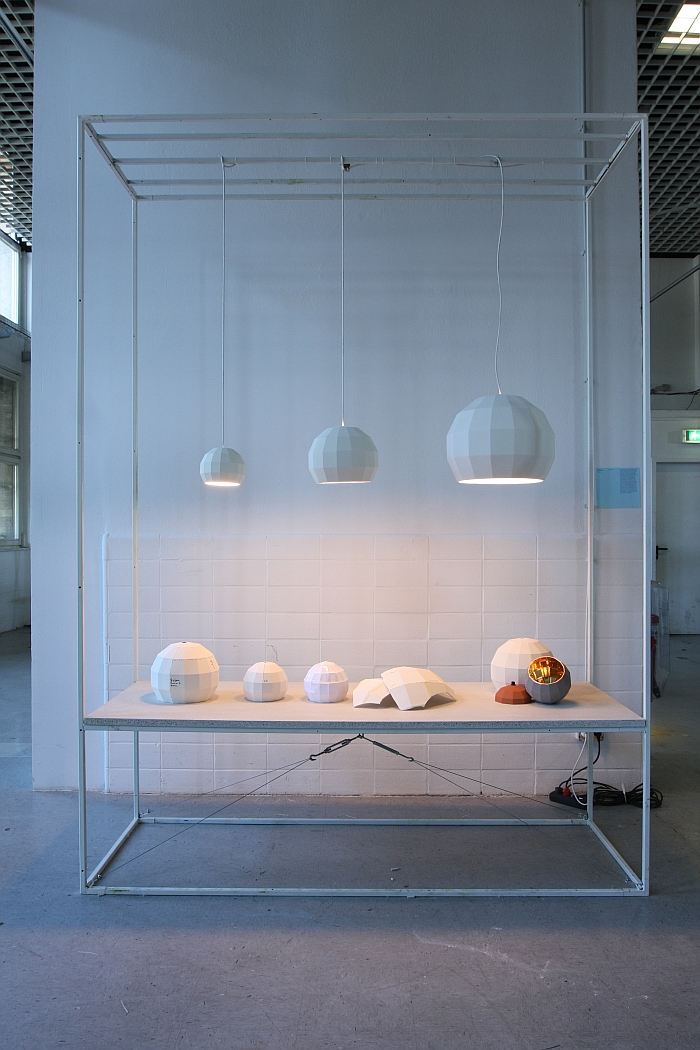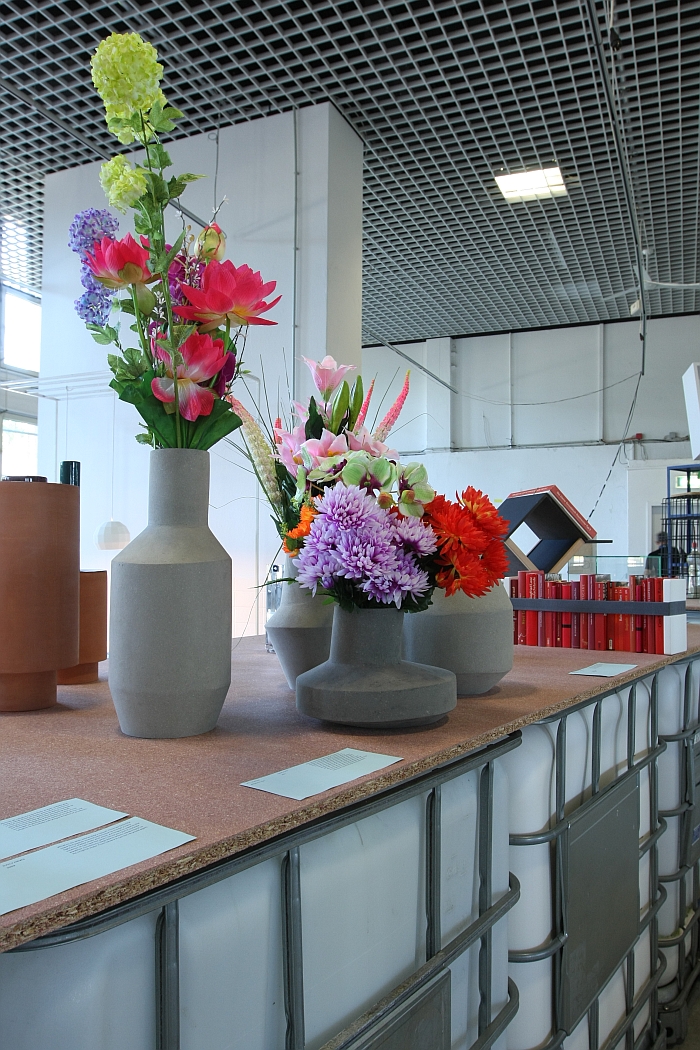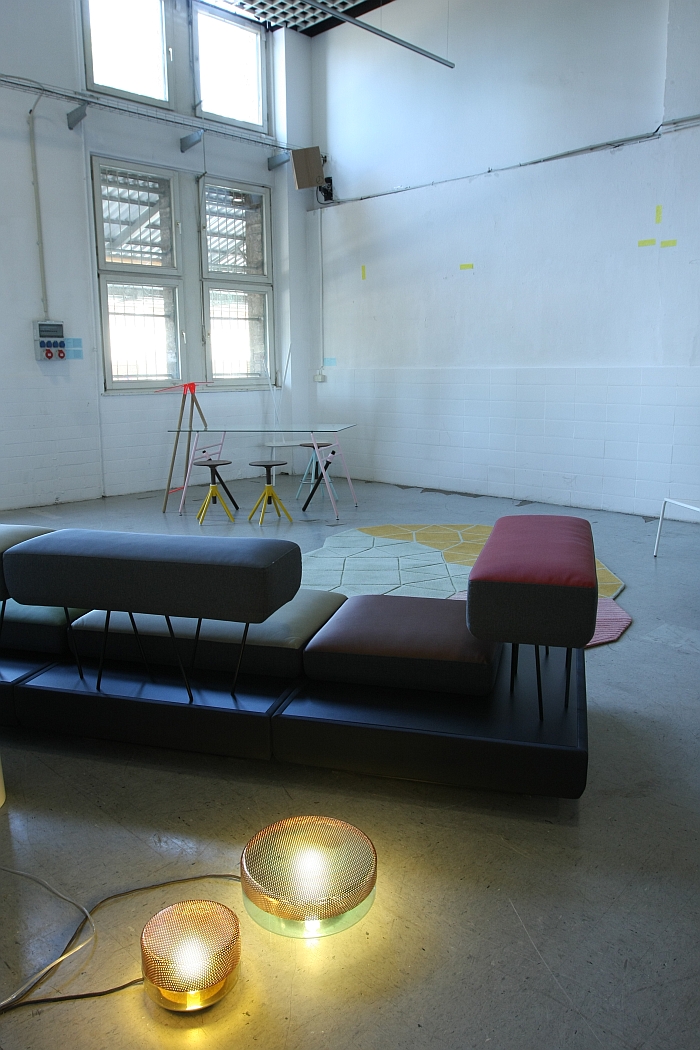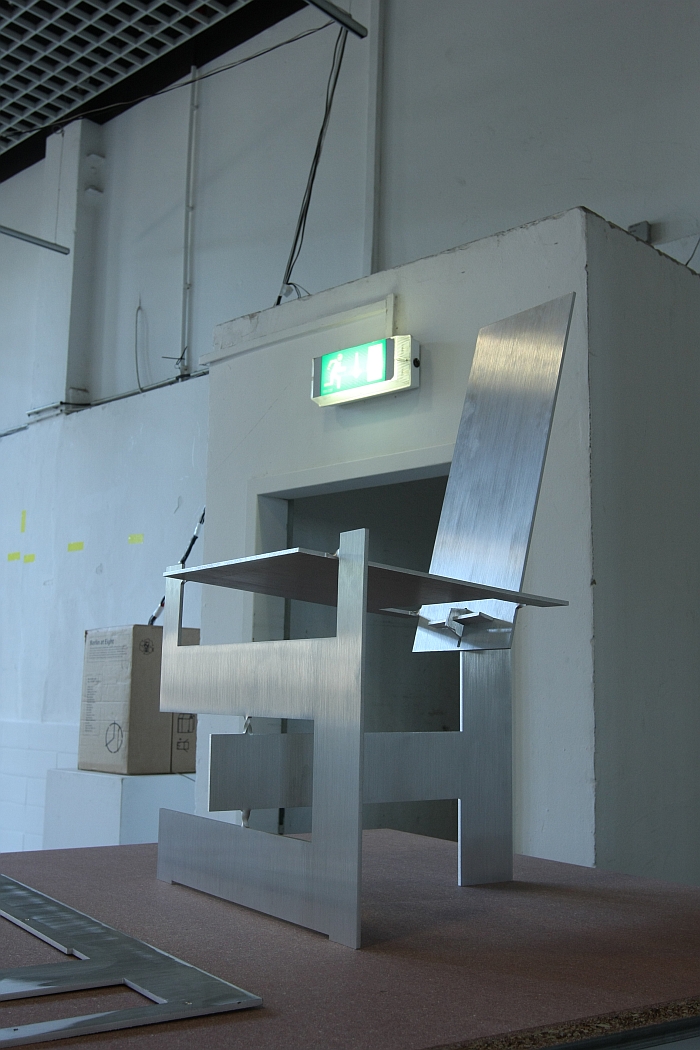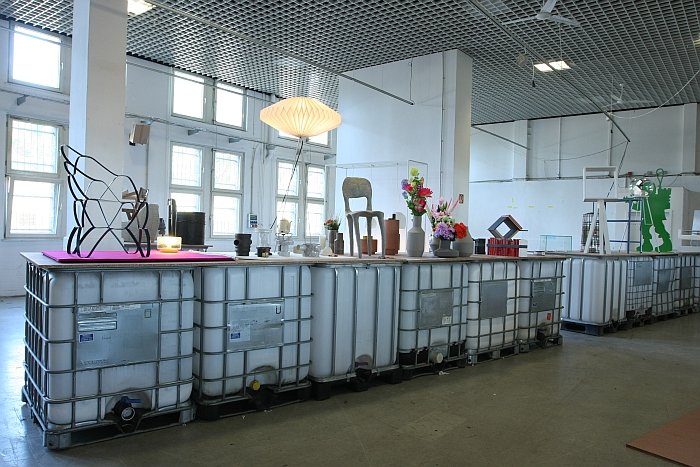As part of DMY Berlin 2013 the Belgian design critic, curator, journalist and lecturer Max Borka organised the exhibition "Refugium. Berlin as a Design Principle" in collaboration and cooperation with students from his d- SOAP course at the FH Potsdam. Presenting works by some 50 Berlin based designers Refugium not only presents works by the selected designers but also seeks/sought to explore what characterises the Berlin design community and what makes the Berlin design scene relevant and interesting. We caught up with Max Borka to discuss his own answers to such question, but began by asking how the exhibition came together......
...... it all really started with a discussion with Hermann Weizenegger and a plan to organise a gallery based exhibition parallel to DMY 2013. Initially the idea was to have an exhibition featuring just Herman and Viron Erol Vert. However after unsuccessfully approaching a couple of galleries with the idea, Hermann managed to organise the most fantastic space on the first floor of the Karl Marx Buchhandlung on the Frankfurter Alle. A fantastic, huge space, and of course we then had to fill! Consequently we decided to expand the concept, contacted selected Berlin designers and very quickly had a group of 50 designers together.
The space in the Frankfurter Alle was then suddenly cancelled, because, as so often, the owner found a longer term tenant, and at that point DMY suggested we present the exhibition at Tempelhof.
smow blog: Given this change of plan, what was the background idea to the larger exhibition that became Refugium?
Max Borka: Part of the background idea is that I always loved the old Designmai. Designmai was different from every other design event, it was very relaxed, it showed perfectly how designers could handle difficult or challenging situations, was very playful but for all it was very honest about the realities of design. It was one could say typically Berlin. For me, and much as I respect what the organisers have achieved with the platform, DMY Berlin has somehow developed in such a way that hardly any Berlin designers take part in the event any more, and so we decided to do something in the context of Berlin design that didn't just present a selection of objects but which also shows that Berlin has a unique voice, something that was always very clear during Designmai.
smow blog: And were you happy with the outcome?
Max Borka: Before I answer that it is important to understand that we organised the whole event in three weeks, without a budget, but with great help from all involved. The designers for example brought the objects themselves to Tempelhof.
I not always happy with the results of exhibitions, but with Refugium I was happy with how things turned out not least because we reached our goals of showing the variety of Berlin design, and that Berlin design has an identity of its own which has very little to do with German design. However I think there is an awful lot more possible and so we will definitely try to organise a second edition.
smow blog: The one criticism we hear of the exhibition is that there was no real information texts, or a catalogue, that explained the background or the objects in more detail or context. Would you agree with such criticism?
Max Borka: We assumed that people would realise that we were a separate exhibition, but many people just walked in and thought it was a "normal" part DMY and so yes more texts or a catalogue would definitely have been beneficial. But the time and the money simply weren't there to properly organise such. Despite that we had very good reactions but yes looking back we really should have done something.
smow blog: You mentioned Berlin's design identity, briefly how do you understand and experience this "identity"?
Max Borka: Berlin has always been living in a crisis and today that gives Berlin a very exemplary role because today there are crises everywhere and only Berlin is really prepared for it. The uniqueness of the Berlin design approach is that it exists much more in terms of architecture, and for all the temporary, spontaneous architecture, as seen, for example, in the work that people such as Raumlabor produce or projects such as the Prinzessinnengarten. We're talking about a design that has less to do with a celebration of the object and certainly not about objects that can be put on display in shops, Berlin is far beyond that Berlin is about solutions, about finding the tools of life. Similarly with architecture, in Berlin architecture isn't about creating landmarks but is about the habitat, the way people interact with and relate to buildings.
And in Berlin there is no dominating, autocratic fashion scene, architecture scene... or indeed design scene. One can't really speak of a Berlin design scene. And this autonomy is one of the things that makes the city very interesting.
smow blog: And for you that differs from the rest of Germany.......
Max Borka: Germans are still very German!
There is a German design scene and there is a Berlin design scene, even if as I say, the Berlin design scene doesn't actually exist, and the German design scene still lives in a bygone age, in a bygone world. German industry in contrast is very advanced, when, for example, you research who is investing in social design you almost always come across German industry. And it's not always just about marketing rather is often an honest attempt by companies to realign themselves. But the German design world doesn't seem to notice. Just as they don't seem to notice what is happening in Berlin, and so consequently Berlin doesn't influence the official debate in Germany, that is still very rigidly attached to its old principles, to the extent where you sometimes wonder if the German design hierarchy even like Berlin....
smow blog: Where for you does the strength in Berlin design come from?
Max Borka: Berlin is like a Zoot suit, a city that has much more space than it really needs and so in Berlin one has the space to grow and develop as you want. In addition this space has also allowed the authorities to make mistakes without that affecting the ways in which people do what they do. The authorities, for example, allowed Prenzlauer Berg to be gentrified beyond the means of normal people: but they simply moved on elsewhere and took their culture with them. And that is the advantage of all this space.
smow blog: And to end, the obvious follow up question, what does Berlin not do so well?
Max Borka: What I do miss here is that there is so little discussion and I think Berlin really deserves a platform for discussions around design, and that was something Designmai and for all the Designmai Symposium did very well. Or, for example, I remember discussions at The Lighthouse in Glasgow that really went into what design is, what design could be, what the role of the city should be, how design could be integrated into a city. And I miss such debates here in Berlin.
Then there is the self-belief among Berlin designers that foreigners know what Berlin is about, but the truth is no one knows what is happening here. There is hardly any media coverage about Berlin and what there is is often just repetition of the same tired old clichés. And so only very few people are aware that Berlin has such an extended understanding of design in which there is a very real crossover with architecture, fashion etc.
In a way its like an aquarium here, a closed, limited body of water in which the fish swim around and feel themselves the centre of the universe!
More details on "Refugium. Berlin as a Design Principle" can be found at https://refugiumberlin.wordpress.com
